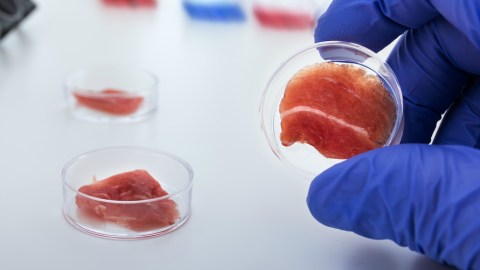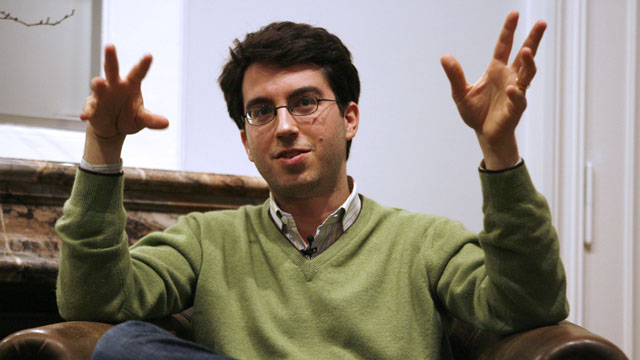Lab-Grown Meat’s Main Obstacle is Quickly Disappearing

My colleague Natalie Shoemakerwrote a few days ago about research efforts that track the various defenses and rationalizations for eating meat. It’s important to note that the piece is written from a strictly rational standpoint centered on the following facts:
1. The ways in which we produce meat these days is very inefficient.
2. Modern dietary science enables us to substitute meat’s necessary nutrients with items like beans, nuts, tofu, etc. These foods are much easier to produce than meat.
3. The meat industry is awful for the environment.
So, rationally speaking, if all things were equal, it would be wise to forgo eating meat and supporting a massive industry that arguably does more harm than good. We don’t need meat, so why not cut it out completely?
But all things are not equal. Meat tastes good. Meat is a cultural staple for many people. Food is family, life, and heritage. You can’t just convince people to stop doing something they like to do, especially when it’s so inexpensive to keep up the habit. Meat isn’t going away anytime soon, no matter how much the anti-meat crowd wants it to.
It’s from this perspective that scientists around the world are searching for alternatives. We’ve talked a bit on this site over the years about meat grown in laboratories. The Washington Post has a profile up today about one scientist — Mark Post of Maastricht University in the Netherlands — who has spent nearly a decade working on such a project:
“Two years ago, Post’s team of researchers presented their first major discovery in the form of a five-ounce hamburger patty, which was created in a lab, but still was remarkably similar to ones sold on supermarket shelves. The reception was promising: The media was abuzz, and the BBC made several food critics try it, one of whom conceded, “This is meat to me; it’s not falling apart.”
The glaring obstacle for Post’s achievement is the cost associated with reproducing it. As mentioned above, the price of industrialized meat is extremely low right now. Any effort to replace animal meat with lab meat will have to address this. Post thinks he’s getting close, explaining to The Post’s Roberto A. Ferdman that it won’t be long until his team reaches its goal of “65 to 70 dollars per kilo.”
“That would drop the five-ounce burger to below $10,” writes Ferdman. And the price could fall even further in the future.
Take a look at Ferdman’s full piece in The Post for more about Post, his work, and a prediction of whether the public would warm up to lab-grown meat. For now, the important take-away here is that the main obstacle to giving synthetic meat a chance to compete could soon disappear.
Photo credit: Alex011973 / Shutterstock





